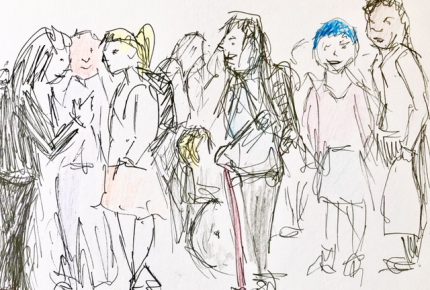Children and Young People
Information Guides
Disabled Students in Further Education and Higher Education
Children and Young People:Frequently Asked Questions
Through our helpline we receive enquiries spanning a wide range of different topics. Here is a selection of those most asked:
Council Help for Disabled People
Scottish councils have responsibilities to help disabled people and their carers who qualify for help. These include:
- Financial help
- Care needs assessments for disabled people
- Providing support for carers
- Blue Badges
- Safeguarding people who are at risk of harm
Financial help
Councils are responsible for providing financial help, including
- Housing benefit – help with rent for people over State Pension age and for some younger people in special circumstances Claim Housing Benefit – mygov.scot
- Means-tested and non means-tested help with council tax costs Working out your council tax – mygov.scot
- Lump sum payments from the Scottish Welfare Fund; Crisis Grants (usually food, energy, or heating) or Community Care Grants to help people stay in, or settle into the community. https://www.mygov.scot/scottish-welfare-fund
Social work departments have powers to help with “Section 12” payments, for adults or children in an emergency if this would save the council costs in future. They can also make payments to promote the welfare of children in need.
Councils must also have a Housing “scheme of assistance” that may give information, advice, grants, loans, and practical assistance to homeowners or, to private tenants who need disability adaptations. https://scotland.shelter.org.uk/professional_resources/legal/housing_conditions/scheme_of_assistance
Most council areas will have a Care and Repair service that will provide advice and help to older people and (in some areas) disabled people who are homeowners or private tenants. Find your local service here Office Locations | Care and Repair Scotland
Care needs assessments for disabled people
If you are disabled, your council’s social work department (or in Highland, NHS Highland) can assess your care needs, and agree a care plan to support you. The help you receive may include equipment, adaptations to your home, care at home, day care or a care home. Any help you receive that is classed as “personal care” is free.
You should be offered a choice in how your care is provided; this is called Self-directed support. Your options within your budget form the council are:
- 1 – a direct payment to you or someone else (such as a care agency) to pay for your own support
- 2 – you arrange the support
- 3 – the local council arranges the support
- 4 – a mix of the above
Support for carers
The Carers (Scotland) Act gives carers a right to support from their local council. A carer is anyone who is not paid for their caring and looks after a friend, family member or neighbour who is disabled. You do not have to be caring for a specific number of hours to be a carer.
Your local Carers Centre can explain what help is available locally. Any help a carer received from their local council is free. Find your local Carers Centre here https://www.careinfoscotland.scot/topics/support-for-carers/carer-centres/ and find out more about carers rights here https://www.careinfoscotland.scot/topics/support-for-carers/
Blue Badges
A Blue Badges provides parking concessions for on-street parking, some car parks, and disabled parking bays, allowing badge holders to park close to where they need to go
A Blue Badge belongs to a person, not a vehicle, so they can travel as a driver or a passenger. Find out more about Blue Badges here: https://www.mygov.scot/apply-blue-badge/eligibility
Protecting people who are at risk of harm
Councils have powers under the Adult Support and Protection (Scotland) Act 2007 to protect adults who cannot look after their own safety and security and are at risk of harm because of disability, mental disorder, illness, physical or mental infirmity, sexual harm or institutional harm.
“Harm” means injury or damage and includes self-harm, neglect and abuse.
Councils and other public services (such as Police) will work together to support people. You can find out more here https://www.gov.scot/policies/social-care/adult-support-and-protection/
If you are worried that someone at risk of harm, you can find your local social work department here
Contact your council
You can find details of your council and its services here Organisations – mygov.scot
Can I get a reduction of Vehicle Excise Duty?
If you are disabled you may be entitled to a reduction or exemption of vehicle tax. The vehicle must be registered in your name or a specific driver’s name and must only be used for your personal needs.
You can apply for exemption if you get the:
- higher rate mobility component of Disability Living Allowance (DLA)
- Enhanced rate mobility component of Personal Independence Payment (PIP)
- enhanced rate mobility component of Adult Disability Payment – mygov.scot
- War Pensioner’s Mobility Supplement
- Armed Forces Independence Payment
You can get a 50% reduction in vehicle tax if you get the Personal Independence Payment or Adult Disability Payment standard rate mobility component Adult Disability Payment – mygov.scot
You can find out more here Vehicles exempt from vehicle tax – GOV.UK (www.gov.uk)
How can I get a RADAR key?
The National Key Scheme (NKS), often referred to as RADAR keys, offers disabled people independent access to locked public accessible toilets around the country. You can buy from Disability Rights UK either over the phone or through their website.
You can also purchase RADAR keys through some chemists and online.
For further information see our Accessible Toilets information guide or the Disability Rights UK website.
Call the Disability Information Scotland helpline on: 0300 323 9961
How can I get a disabled parking space outside my house?
If you need a disabled parking space outside your house, contact your council. They will assess your circumstances and may charge for this.
To qualify, you must
- have a current blue badge
- either be the driver of the vehicle or be assisted by a carer who is the driver if they live where the space is needed
- keep the vehicle at the address you give on the application form
- normally have difficulty getting a perking space on the public road.
A disabled parking space can be used by anyone with a blue badge, not just the person who applied for it.
For further information or help searching for your local council’s contact number then please contact our helpline on 0300 323 9961.
For more information on getting a blue badge, check out our Blue Badges Information Guide.
Children and Young People:Search for Local Organisations
Our quick search tool can connect you to over 3000 service providers, suppliers and organisations supporting people across Scotland. To find support near you, simply enter your search term and select your local authority.
| Organisation | Description |
|---|---|
| Scottish Accident Prevention Council | Promote safety in all aspects of life |
| Scottish Alopecia Support Group | Support to people suffering Alopecia Areata |
| Scottish Association of Sign Language Interpreters (SASLI) | British Sign Language (BSL) Interpreters |
| Scottish Borders Youth Voice (VOICE) | Young people are provided with learning and development opportunities through informal training in decision-making, group work, communication, planning and evaluation |
| Scottish Braille Press | Description of service: The Scottish Braille Press is a leading provider of high quality alternative formats and offers a transcription service to create Braille, Large Print and Audio for all types of business regardless of size. With a strong history… |
| Scottish Co-production Network | The SCN is open to anyone who is interested in co-production in Scotland |
| Scottish Cot Death Trust | Aims: To support bereaved families, to raise awareness of cot death and associated risks and to fund research into sudden and unexpected death in infancy (SUDI): Provision of breathing monitors to all infants born into a family that has suffered cot de… |
| Scottish Council for Voluntary Organisations (SCVO) | Aims: To support people to take voluntary action to help themselves and others, and to bring about social change. Services provided: Providing the following services to members: Freephone information service funding.scot – free searchable database of f… |
| Scottish Council of Jewish Communities (SCoJeC) | SCoJeC is the representative body of the Jewish communities in Scotland |
| Scottish Courts and Tribunal’s Services | Help secure ready access to justice for the people of Scotland |
- « Previous Page
- 1
- ...
- 25
- ...
- 50
- ...
- 72
- 73
- 74
- 75
- 76
- ...
- 98
- Next Page »

